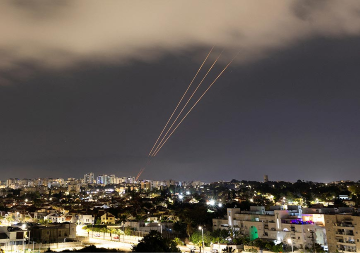
In the 1969 British classic television series, The Prisoner, a resigned secret agent, always referred as Number 6, struggles to establish his identity as a ‘free man’ rather than a number. He also makes several attempts to escape from the village where he has been held captive but fails invariably. Something similar is happening to Indian citizens. Suddenly, we have all become numbers and are concerned only about numbers. We are now defined by the 12 digit number that the state has given to us which is required to access pretty much everything, be it a bank account or a mobile phone connection. But for the poor and elderly, consequences have been devastating. The imposition of Aadhaar Based Biometric Authentication (ABBA), the practice of using an electronic point of sale machine for each transaction, has created many hurdles for poor families in accessing subsidised foodgrains.
The imposition of Aadhaar Based Biometric Authentication (ABBA), the practice of using an electronic point of sale machine for each transaction, has created many hurdles for poor families in accessing subsidised foodgrains.
The first hurdle for a poor household is seeding or the practice of entering Aadhaar numbers of each household member on the ration card. In their passion to achieve 100% Aadhaar-seeding targets, officials in many cases have simply deleted the names of those who could not submit Aadhaar details calling them ‘fake’ and thereby saving crores for the government. It is important to understand that not all such ration cards are actually fake and excluding the poor and the marginalised people from the PDS can’t really be described as savings because in many instances people were unaware of the requirement or the middlemen had entered wrong data. Moreover, it is important to appreciate that ABBA has the potential to eliminate only identity fraud and not quantity fraud, the practice of cheating on quantity sold, which can neither be curbed by Aadhaar seeding or ABBA. For the old and infirm persons, who are dependent on others, it is an onerous task to link their Aadhaar numbers to ration cards. Hence, a bit of sensitivity should have been ensured in the implementation of such a huge exercise.
However, Aadhaar-seeding is not the only hurdle for poor families. For families which have successfully seeded their Aadhaar numbers to ration cards, the next hurdle lies at the time of purchase. At the time of purchase, ABBA requires power supply, a functional point of sale machine, internet connectivity, and for the fingerprint authentication to be successful. Not only are power and internet connectivity major issues in rural areas, biometric mismatch also happens quite frequently because the system doesn’t work as smoothly as we imagine. In addition, many of the beneficiaries are old or are manual labourers with rough fingerprints which is why cases of biometric mismatch are quite high.
Aadhaar-seeding is not the only hurdle for poor families. For families which have successfully seeded their Aadhaar numbers to ration cards, the next hurdle lies at the time of purchase.
Thus, Aadhaar which was originally conceived to promote a more efficient distribution of food grains or welfare services in general has actually led to a further marginalisation of the poor and vulnerable. For a country like ours, where the right to food was a hard-won battle, the complicated process is denying the poor their fundamental right to food and right to life. However, most of the discussions which followed the recent spate of deaths, including the death of an eleven-year-old child in Jharkhand, hardly tried to hold the government accountable for the right to food.
But why is that so? In this day and age, where so many educated Indians have access to the internet and news reaches so fast, why are the citizens not demanding greater accountability from the government when food rights of the poor are eroded? The answer lies in the conceptualisation of the right to food in the minds of Indian citizens. Naomi Hossain, Dolf te Lintelo, and Alexandra Wanjiku Kelbert highlight the importance of a common sense approach to the right to food. According to them, popular conceptions of food rights are very different from the aspirations of legal and human rights framings. For the government to be held accountable for the right to food, there should be a common understanding between the citizens and the state about what the right to food entails. In their paper, they asked poor people in selected developing countries of Asia and Africa some simple questions regarding what is the right to food and who gives them this right. Interestingly, many of the poor people in Kenya and Bangladesh said that the right to food comes from God and the government of the day was denying them their right. Such responses may seem amusing but if a similar study were to be carried out in India, many poor Indians who are the intended beneficiaries of welfare schemes will respond in a similar manner. Such conceptions of food rights reflect the lived realities of the people who live in hunger and not the theories that underpin the legal right to food or the zero hunger goal.
In this day and age, where so many educated Indians have access to the internet and news reaches so fast, why are the citizens not demanding greater accountability from the government when food rights of the poor are eroded? The answer lies in the conceptualisation of the right to food in the minds of Indian citizens.
Although their study does not interview the government officials and the urban educated citizens in these countries, doing so is important because their perception of the right to food is likely to be very different from those who depend on the public distribution system. How do the officials who are overzealous in their mission to achieve 100% Aadhaar-seeding conceptualise the right to food? How does the bureaucracy which is implementing Aadhaar conceptualise the right to food? For greater accountability in India, it is also important to find out how the Indian middle class, a class which plays a much larger role in building public opinion, conceptualises the right to food. Is the Indian middle class only concerned about eliminating identity fraud in the public distribution system in the name of fighting corruption or it also concerned about ensuring that their fellow citizens get their right to food? If the former is true, then it will be next to impossible to hold the government to account. In a nutshell, the right to food must figure in more prominently in the discussions on Aadhaar and its implementation. Technology may have the potential to fix problems in the PDS but in our quest to adopt technology, we can’t abandon or subvert the right to food. If that happens, then we would all actually become numbers and cease to be citizens with rights.
The views expressed above belong to the author(s). ORF research and analyses now available on Telegram! Click here to access our curated content — blogs, longforms and interviews.




 PREV
PREV


